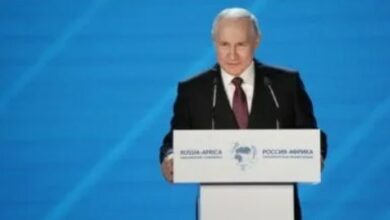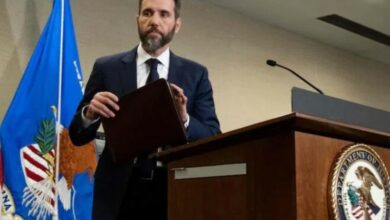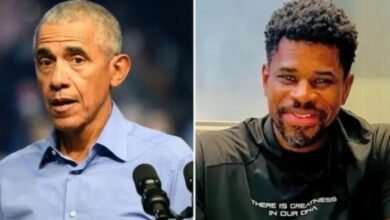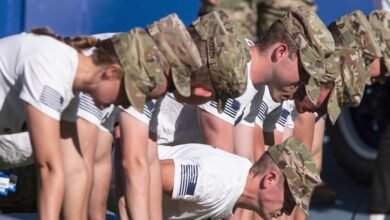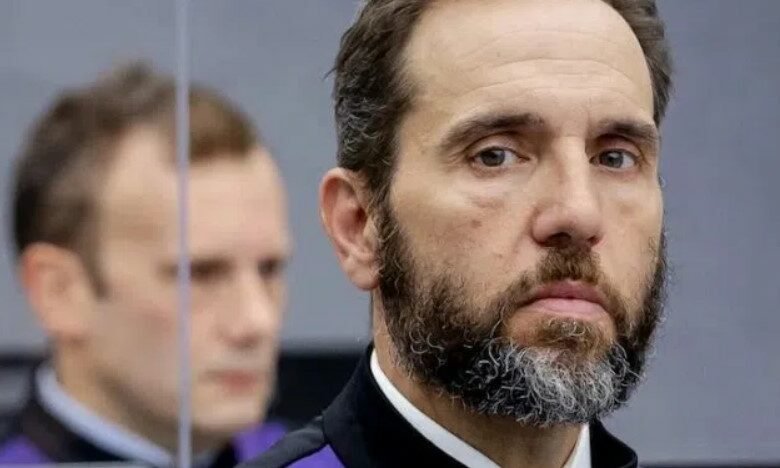
Special Counsel Jack Smith is preparing to hold Donald Trump in “pretrial detention” to prevent him from running for President in the 2024 election, according to reports. A key 2021 court ruling and recent precedent in the prosecution of J6 defendants gives Smith all the ammunition he needs to put the former president in jail awaiting trial.
One month after the events of January 6, Beryl Howell—chief judge of the D.C. District Court at the time—developed special guidance for her fellow judges to apply when determining whether a January 6 defendant should be denied bail.
Declassified.live reports: While acknowledging the federal bail statute requires courts to consider the “specific conduct of each defendant,” Howell, appointed by Barack Obama in 2010, nevertheless argued that January 6 defendants, i.e., Trump supporters, should be treated as part of a group rather than individually as the law requires. “Before evaluating the nature and circumstances of defendant’s specific conduct, consideration of the differentiating factors that warrant pretrial detention of certain defendants facing criminal liability for their participation in the mob (emphasis added) is helpful,” Howell wrote in her order granting a Department of Justice request to deny the release of William Chrestman, a Trump supporter from Kansas City.
The reason, Howell explained, was due to “the undeniably traumatic events of January 6.” She then provided what she called “a useful framework through which to contextualize the nature and circumstances of offenses committed at the U.S. Capitol on January 6, 2021.”
Her 32-page order became what’s commonly referred to in court filings as the “Chrestman factors.” Prosecutors have routinely cited Howell’s decision to justify pretrial detention for more than 100 January 6 defendants including those accused of committing no violence.
What Howell essentially got away with—it’s unclear why defense lawyers for Chrestman, who has been in jail for two-and-a-half years currently awaiting an August 4 trial date, have not appealed her order—was to create no-bail rules that apply only to January 6 protesters.
It is inimical to the tenets of equal justice under the law but none of that matters in the Trump-hating cesspool known as the D.C. federal courthouse. (For example, BLM protesters who assaulted police for days in D.C. in 2020 were released and charges dropped. January 6 protesters accused of even minor confrontations with police were denied bail and left to languish in prison for months or years before being convicted at trial or tormented into a plea deal.)
Howell’s ruling now looms large as special prosecutor Jack Smith appears ready to indict Donald Trump this week for his alleged role in January 6. Smith likely will charge Trump with several felonies including charges that have resulted in court-ordered pretrial detention for January 6 defendants.
So the big question post-indictment is: Will Jack Smith seek pretrial detention for the former president?
He very well might. Smith—burning though more than $1 million per month in taxpayer money to fund his overzealous, unaccountable prosecution of Donald Trump—has no guardrails in the venue of Washington, D.C. where Trump’s January 6 case will be prosecuted. Further, Democrats and the media have generated such bloodlust among the Democratic Party base that anything less than images of Trump behind bars as he tries to campaign for president will be viewed as a failure on Smith’s part. They want Trump in prison, post haste.
And what better way to deflect attention away from the Biden family legal and political scandals than blaring headlines that read “DONALD TRUMP DENIED BAIL!”
How Howell Decision Could Impact Donald Trump’s Freedom
This passage in Howell’s order should be of most concern to Trump’s legal team as it relates to a potential motion to deny release. “[A] defendant who assumed either a formal or a de facto leadership role in the assault by encouraging other rioters’ misconduct, for example, by urging rioters to advance on the Capitol or to confront law enforcement, may have inspired further criminal conduct on the part of others.”
In the anything-goes courtrooms of Washington, D.C., where judges act as nothing more than a rubber stamp for the DOJ, Smith easily could convince a judge that Trump indeed played a “de facto leadership role” in what happened that day. Prosecutors could point to tweets and interviews before January 6 as evidence the former president encouraged the “mob” to “attack the Capitol.”
After all, Trump’s December 19, 2020 tweet—”Big protest in D.C. on January 6th. Be there, will be wild!”—has been cited by both the government in January 6 trials and by the January 6 Select Committee as a “call to arms” of sorts to demonstrate Trump’s alleged culpability.
Smith’s team also could cite parts of Trump’s speech at the Ellipse on January 6 as proof he compelled the “mob” to act. His tweet at 2:24 p.m that day accusing former Vice President Michael Pence of not having the “courage to do what should have been done to protect our Country and our Constitution” could serve as more proof Trump prompted an escalation of violence at the Capitol that coincided with the temporary suspension of the electoral college count.
Aside from Howell’s guidance, the DOJ now has ample precedent to support pretrial detention for Donald Trump. If Smith charges the former president with obstruction of an official proceeding, the most common January 6 felony, and/or conspiracy to obstruct, multiple judges have denied release for defendants indicted on those same counts even defendants not charged with assaulting police or destroying property.
Proud Boys Trial and Classified Documents Case
This is especially relevant in the obstruction and conspiracy cases against members of the Oath Keepers and Proud Boys—and the latter case raises another serious legal threat to Trump and the potential for pretrial detention.
The government made Trump a key figure in the seditious conspiracy trial of five members of the Proud Boys earlier this year. Prosecutors told the jury that the Proud Boys were “Trump’s army” and played a clip of Trump’s comments during the September 2020 presidential debate—”Proud Boys, stand back and stand by”—at closing arguments in April.
“[There] was one final chance to keep Trump in power, January 6, 2021, and they knew the importance of that day,” assistant U.S. Attorney Nadia Moore told jurors in her closing pitch. “These men’s purpose was to illegally keep Trump in power.”
If Smith indicts Trump for seditious conspiracy, a Civil War-era statute rarely used against American citizens, he almost certainly will ask to keep Trump in custody. Numerous defendants charged with seditious conspiracy were denied bail; Smith will argue, as his lawyers have in the classified documents case, that Trump should be treated as a “private citizen” without special consideration.
And there is a possibility Smith could use that ongoing case to put Trump in jail before trial. Trump stands accused of illegally retaining national defense information at Mar-a-Lago and obstructing DOJs investigation into his handling of classified material. Would Smith argue that the former president poses a threat to the community, or the country, based on both matters?
Even if Smith does not ask for pretrial detention, he could ask for strict release conditions to severely limit Trump’s movements. Home confinement or detention, a curfew, travel restrictions, a monitoring device are just ways Smith could impair Trump’s ability to effectively campaign for president.
Which is, of course, what this is all about. This week’s expected indictment is only part of Trump’s problems related to the January 6 prosecution. Smith’s next move could present the greatest threat to Trump’s candidacy–and freedom–than the initial charges themselves.

